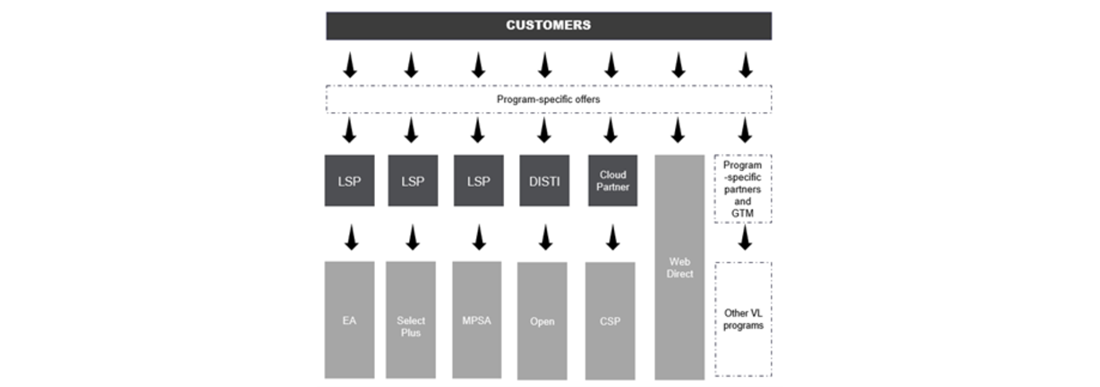Microsoft is making major changes in its approach to its licensing.
The wide-reaching changes are coming in under the title of the new commerce experience.
While many organisations will be focused on how this will impact on their Microsoft 365 and Office 365 licensing, changes have the potential to impact the pricing of Dynamics 365 and Power Platform for organisations. We’ve summarised the changes below so organisations can see how they may be impacted.
What Is The New Commerce Experience?
The new commerce experience is an attempt, Microsoft says, to simplify its many licensing models.
Subscription licensing for Microsoft products has now existed for over a decade. Over this time, both the supplier model and licensing structures have sprawled as more and more products have been brought in to the model. As such, the new commerce experience is said to offer “a consistent, simplified, and flexible purchase experience for customers and partners”.
The new commerce experience is already in place for Azure services. However, the application of this approach to wider licensing will come at an additional cost to some organisations
Changes To Partner Models
In terms of the provision of licensing, most organisations purchase licensing from organisations linked to the Cloud Solution Provider programme (CSP). But in fact, there are actually six partner licence supply models at present.

This will now be folded into just three retail models:
- Breadth motion - Designed for the SME market, this will span the bulk of the current CSP model.
- Enterprise motion – Large organisations will now be able to purchase licensing from a Microsoft account manager.
- Self-service motion - For organisations wishing to purchase their own licences.
These changes will simplify the overly complex partner model, though some partners will now find their enterprise customers will now transact with Microsoft directly.
Customer Licensing Subscriptions
For customers, the new commerce experience will see the emergence of three subscription models:
Monthly subscription:
- Under this model, seats can be increased or decreased each month to meet the organisation's needs.
- However, the flexibility of this model will carry a 20% price premium.
- Organisations would also not be protected from any future licence price rises.
12-month subscription:
- Under this option, organisations commit to licences on a 12-month term.
- Licences can’t be cancelled after the first 72 hours, and can only be terminated at the end of the 12 month term.
- Licence numbers can be increased during the 12-month term (with pro-rata billing), but not decreased.
- Organisations will not be exposed to price rises during their 12-month term.
36-month subscription:
- This option commits customers to a 36-month term, with cancellation only available in the first 72 hours. Licences will be able to be reassigned, however.
- Licence numbers can be increased on a pro-rata rate during the term, but not decreased.
- Organisations will receive price protection from cost increases for the full 36-months.
Organisations will be able to mix and match licensing based on their requirements. However, the changes will mean that any organisation previously trying to operate on a flexible model will have to pay more for the benefit.
When Will The New Commerce Experience Come Into Effect?
Organisations can purchase licences from the new commerce experience now, but the new model will come into full effect from March 2022. Any licencing purchased at or after this time is subject to the new model.
Any existing Microsoft licences will move over to the new model at their point of expiry. This is expected to be complete by February 2023.
As this now adds an extra dimension of confusion to renewals, it’s advisable to work with a partner on your licensing. If your organisation requires assistance or a review of your Dynamics 365 and Power Platform licensing our consultants will be happy to help.
For more information please get in touch:





